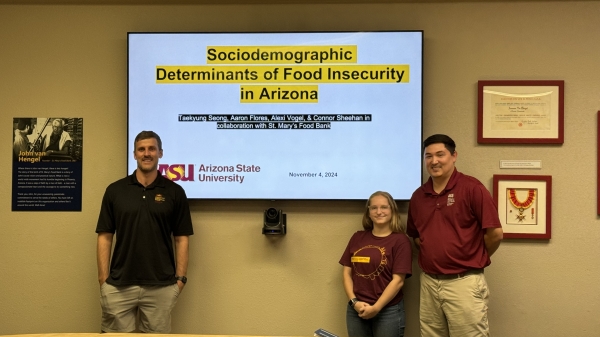Family bereavement program shown to reduce long-term depression in children

Photo courtesy Pixabay.
An Arizona State University study published in the Journal of the American Academy of Child and Adolescent Psychiatry provides new evidence for the prevention of long-term depression experienced by bereaved children.
In a randomized trial, researchers with the ASU REACH Institute found that involvement in a 12-session program for parents and youth in families that had experienced the death of a parent led to a 50% reduction in the onset of major depression 15 years later when the youth were young adults.
This is the first study to demonstrate that a program for bereaved children prevented the development of major depression when they reached adulthood.
The program consisted of 12 group meetings with caregivers, children and adolescents who had experienced the death of a parent.
Caregivers learned practical tools to care for themselves and to build a supportive, positive family environment for their children. Children and adolescents learned and practiced effective coping and emotion regulation tools to deal with their grief as well as everyday stressors they encounter.
“It is gratifying to see that the program had such long-term benefits for bereaved children," said Irwin Sandler, ASU research professor and the study’s principal investigator. "Our prior publications had shown earlier benefits to reduce long-term impairing grief as well as reductions in children’s mental health problems, but this is the first time we have seen such long-term benefits in terms of reduction of children’s clinical levels of depression when they reached early adulthood.”
Participants in the randomized trial included 244 children from 156 families. Participants were randomly assigned to participate in the program over a 12-week period or to receive popular books on grief and adjustment to the death of a loved one. Participants were interviewed five times, including 15 years following participation in the program.
The new report was also able to shed light on the pathway through which the program prevented depression.
Program-induced changes one year following participation partially accounted for the effects 15 years later. More specifically, the study found that strengthening parenting and children’s coping and emotionsl regulation, and reducing children’s grief in the year following the program, were important parts of the pathway that led to a reduction in the development of depression 15 years later.
More Science and technology

Teaching construction realities with virtual environments
Visiting a construction site is a valuable learning opportunity for students who want to one day work in the industry.…
ASU, Mexico partner to build next generation of chipmakers, drive semiconductor innovation
Thousands of college students in Mexico will soon have the opportunity to enroll in Arizona State University’s new, free online…

ASU, St. Mary’s Food Bank partner to tackle food insecurity in Arizona
Arizona State University and St. Mary’s Food Bank (SMFB) have joined forces to create an interactive data dashboard that tracks…